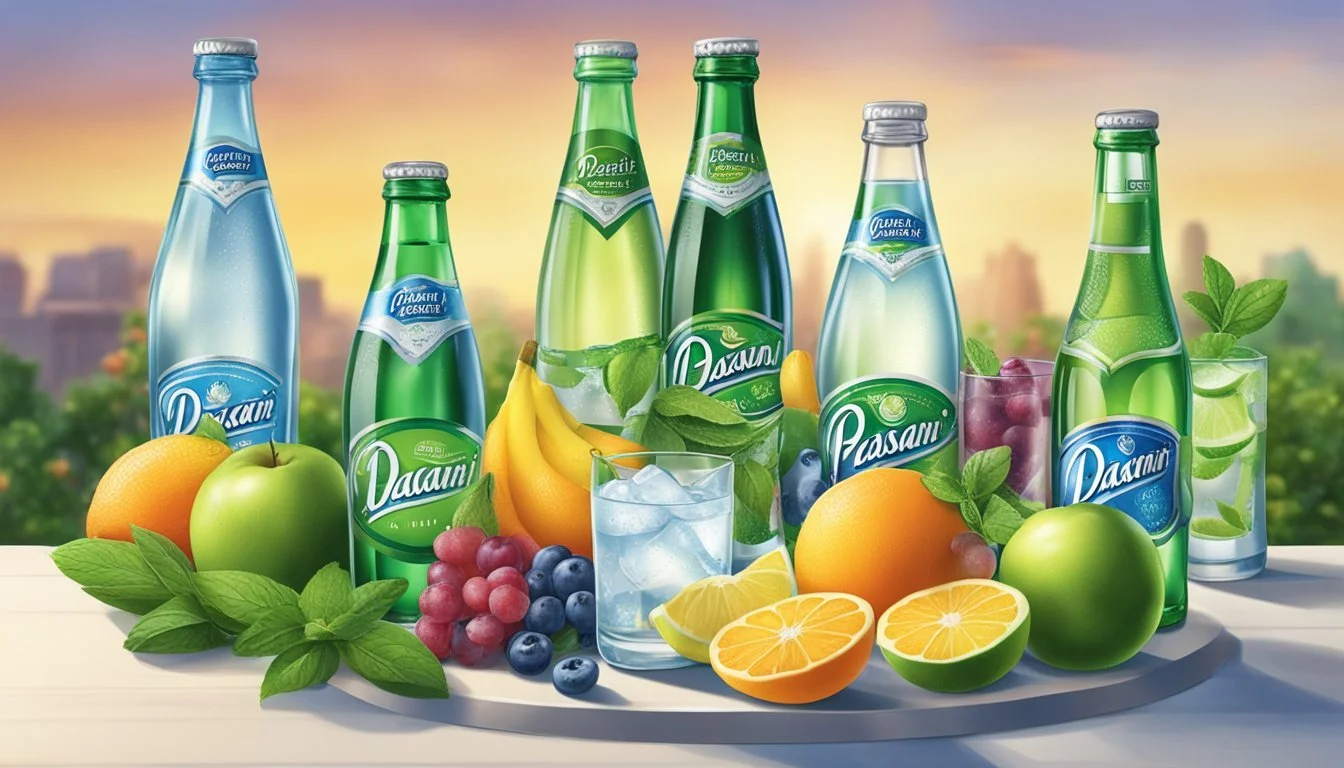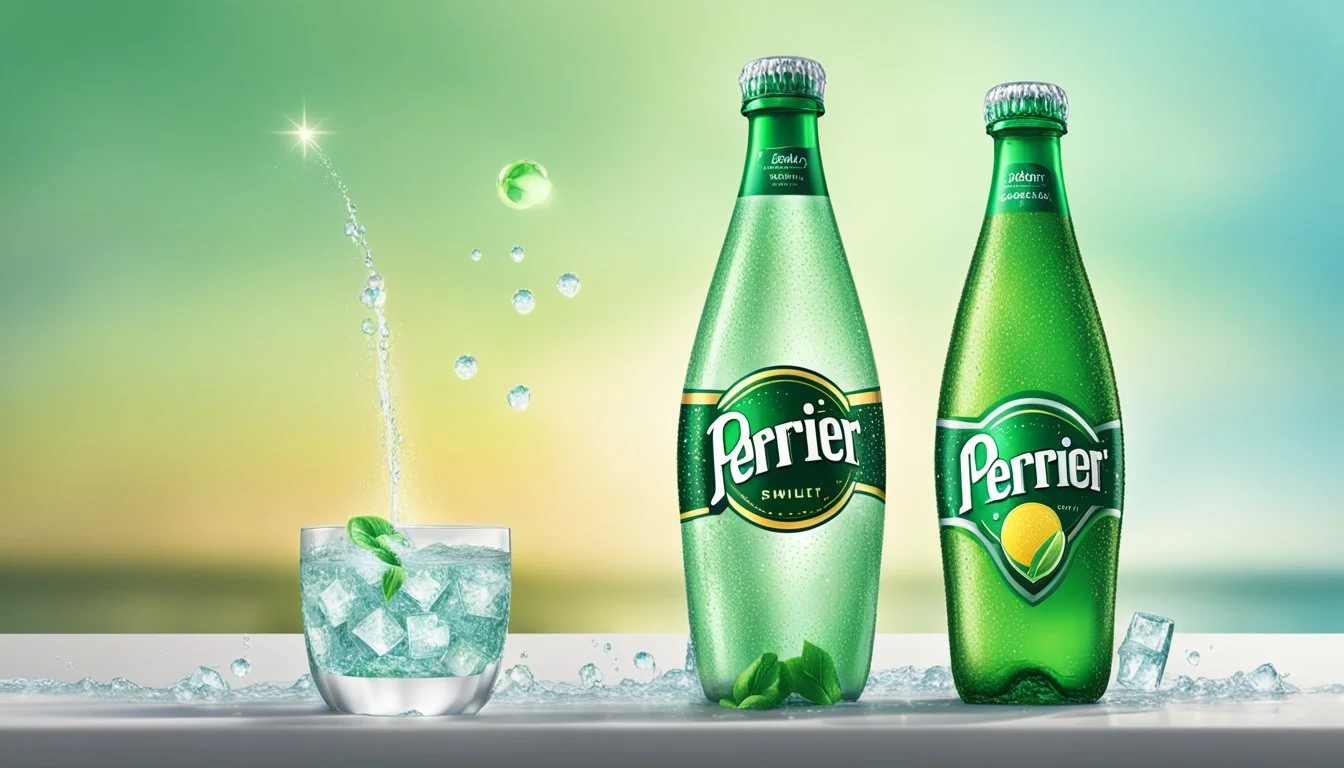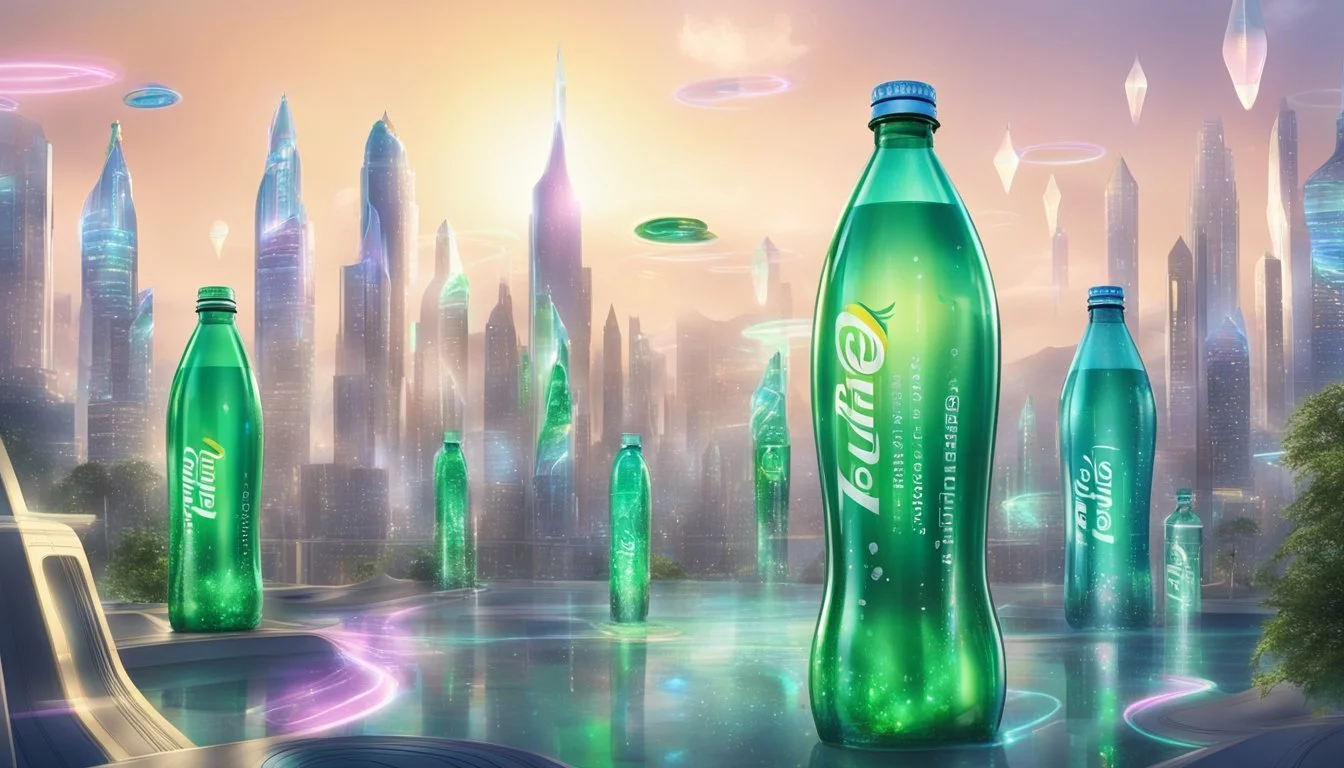Perrier vs. Dasani
Which Bottled Water is Better for You?
Deciding between Perrier and Dasani for your bottled water needs can shape how you stay hydrated throughout the day. Both brands bring something unique to the table. Perrier, a sparkling water known for its crisp and refreshing taste, has been a longstanding favorite for those who enjoy a bit of fizz. On the other hand, Dasani offers a more accessible option with its purified still water, perfect for everyday use and convenience.
While Perrier stands out with its natural carbonation and mineral content, making it a preferred choice for those who appreciate a premium drinking experience, Dasani excels in its affordability and widespread availability, making it a practical choice for many. The differences are stark: Perrier’s sophisticated bubbles and mineral flavors versus Dasani’s straightforward, no-nonsense hydration.
In summary, the best choice depends on personal preference and lifestyle. If you enjoy the experience of drinking sparkling mineral water, Perrier could be your go-to. Conversely, if convenience and cost are your primary concerns, Dasani might be the better fit. Your choice will ultimately reflect what you value most in your bottled water.
The Bottled Water Industry Overview
The bottled water industry has seen significant transformations over the years, marked by the emergence of major brands and changing consumer behaviors. Understanding these facets provides insight into the current competitive landscape and consumer preferences.
Evolution of Bottled Water
Bottled water has evolved from a luxury item to a daily necessity for many people. In the early days, bottled water was often sourced from natural springs and marketed for its purity and health benefits.
Over time, advancements in purification technologies and packaging have played a role in the mass production and accessibility of bottled water. The industry has seen increased regulation to ensure safety and quality, fostering trust among consumers.
Major Bottled Water Brands
Several key players dominate the bottled water market, each offering various products to cater to different consumer needs.
Brands like Perrier, known for its sparkling water and historic roots in France, emphasize premium quality and natural carbonation. Dasani, produced by the Coca-Cola Company, focuses on affordability and wide distribution, offering purified, mineral-enhanced bottled water. Other notable brands include Aquafina, Evian, and Smartwater, each adding their unique selling points to the mix.
Consumer Trends and Preferences
Consumer preferences in bottled water have shifted notably over the years. Environmental concerns are leading many to choose brands that use eco-friendly packaging or promote recycling initiatives.
Taste and purity remain critical factors, with many consumers favoring brands that offer consistent, clean-tasting water without a metallic or plastic aftertaste. The rise of premium bottled waters, such as those offering added vitamins or minerals, indicates a growing demand for enhanced health benefits.
These trends reflect a broader movement toward health consciousness and environmental responsibility among consumers in the bottled water market.
Understanding Water Quality and Sources
Quality and sources are critical when choosing between bottled water brands like Perrier and Dasani. This section delves into the types of bottled water, the sourcing and origin of the water, and the regulations and standards overseeing bottled water quality.
Types of Bottled Water
Bottled water comes in various types, distinguished by their sources and treatment processes. Spring water is collected directly from natural springs, retaining minerals naturally found in rocks and soil. Purified water, such as Dasani, undergoes processes like reverse osmosis or distillation to remove impurities and may include added minerals for taste.
Mineral water contains naturally occurring minerals and must meet specific mineral content levels. Perrier, for example, is known for its natural carbonation and mineral content. Other types include artesian water from confined aquifers and well water drawn from underground sources.
Sourcing and Origin
Sourcing and origin greatly impact the quality and characteristics of bottled water. Perrier sources its water from a natural spring in Vergèze, France. This region adds distinct minerals and carbonation to the water as it flows through volcanic rock and natural springs. Natural spring water like Perrier offers a unique taste profile due to these minerals.
Dasani, on the other hand, is purified municipal water. The Coca-Cola Company sources it from local supplies, treating it extensively before adding minerals. Unlike natural spring water, purified water like Dasani focuses on removing impurities and ensuring consistent taste by adding specific minerals post-filtration.
Regulations and Standards
Both Perrier and Dasani must adhere to strict regulations and standards to ensure consumer safety and quality. The Food and Drug Administration (FDA) oversees bottled water in the United States, ensuring it meets standards for contaminants and labeling. In the European Union, the European Food Safety Authority (EFSA) plays a similar role.
In the U.S., bottled water also falls under the Environmental Protection Agency (EPA) regulations, particularly for source water protection. Natural spring water must maintain specific characteristics, while purified water must meet precise contaminant levels. Regular testing and compliance with these standards guarantee that bottled water remains safe and reliable for consumers.
Health and Hydration
When evaluating the health benefits of Perrier and Dasani, it's essential to examine the fundamental aspects of hydration and the presence of minerals and electrolytes. Both brands aim to offer refreshing and health-conscious choices to consumers.
Hydration and Body Function
Hydration is crucial for maintaining various bodily functions. Proper hydration aids in regulating body temperature, lubricating joints, and supporting digestion. Dasani, being purified water without carbonation, is straightforward and effective in meeting daily hydration needs.
On the other hand, Perrier, a sparkling mineral water, also provides adequate hydration while offering the added benefit of a fizzy experience. Though the carbonation might be less efficient for rapid hydration compared to still water, it doesn't significantly impede the body's ability to stay hydrated. Both Dasani and Perrier are effective in helping the body maintain hydration, a critical aspect of overall health.
Impact of Minerals and Electrolytes
Dasani includes a blend of minerals such as magnesium sulfate, potassium chloride, and salt, which enhance its taste and provide minimal but beneficial electrolytes. These minerals can help maintain electrolyte balance, essential for muscle function and maintaining the body's pH levels.
Perrier, naturally sourced from springs in France, boasts a unique mineral composition due to its natural carbonation process. It contains calcium, magnesium, and bicarbonate. These elements support bone health and aid in neutralizing the acidity in the body, contributing to maintaining an excellent pH balance.
While Dasani focuses on mineral enhancement for flavor and mild health benefits, Perrier's naturally occurring minerals offer a broader range of potential health advantages.
Comparing Perrier and Dasani
Perrier and Dasani, both popular bottled water brands, have distinct qualities and characteristics. Perrier stands out for its natural mineral content and sparkling nature, while Dasani is known for its purification process and affordability.
Brand Profiles
Perrier originates from the French Alps and is known for its natural carbonation and unique mineral content. It has been a symbol of elegance and sophistication since the 19th century.
Dasani, a product of the Coca-Cola Company, is a widely available and affordable option. It is purified through reverse osmosis and enhanced with a blend of minerals to create a consistent taste.
Perrier
Origin: French Alps
Type: Sparkling mineral water
Parent Company: Nestlé Waters
Dasani
Origin: United States
Type: Purified water
Parent Company: Coca-Cola Company
Production Processes
Perrier’s water is sourced from a spring in the French Alps, naturally carbonated through gas from the limestone and rich in minerals. It is bottled at the source to preserve its natural qualities. The meticulous process ensures the retention of its crisp, sparkling characteristic.
Dasani undergoes a purification process involving reverse osmosis, removing impurities from the water. Post-filtration, Dasani adds a blend of minerals, including calcium and magnesium, to achieve a smooth flavor. This rigorous preparation guarantees the water’s purity and a neutral taste profile.
Taste and Texture
Perrier offers a crisp, refreshing taste with a natural effervescence. Its mineral content is noticeable, providing a slightly salty yet pleasing finish. The carbonation level is balanced, adding to its refreshing nature without being overpowering.
Dasani, on the other hand, delivers a clean, smooth taste. The absence of carbonation and the addition of minerals result in a subtle flavor. Compared to Perrier, Dasani’s texture is softer, making it a palatable choice for various settings, from hydration to pairing with meals.
Environmental and Ethical Considerations
When comparing Perrier and Dasani, several factors influence their environmental and ethical impact. Key aspects include sustainability practices and the use of plastic and recycling efforts.
Sustainability Practices
Perrier, a brand under Nestlé, is noted for its efforts in reducing environmental impact. It sources its water from a single, protected spring in France, ensuring sustainable water management. They also implement forest management practices to protect the surrounding ecosystem.
Dasani, produced by the Coca-Cola Company, focuses on water purification through reverse osmosis. They work on sustainable water practices via partnerships and initiatives aimed at replenishing water sources. However, tap water is often highlighted as a more sustainable option due to its minimal environmental footprint.
Plastic Use and Recycling
Perrier uses glass bottles for many of its products, which are highly recyclable and preferred by environmental experts. They also offer plastic options but emphasize using recycled materials. Their goal includes increasing the percentage of recycled content.
Dasani is known for its use of lightweight plastic bottles designed to reduce material usage. The company has committed to making 100% of its packaging recyclable by 2025. Consumers are encouraged to recycle, but the effectiveness relies on participation rates and infrastructure. Boxed Water and alternatives like La Croix offer different approaches to mitigate plastic use.
Consumer Guides and Recommendations
Choosing the best bottled water depends on factors like personal taste preferences, availability, price, and specific health requirements. Evaluating these aspects can help consumers make informed decisions tailored to their needs.
Selecting a Bottled Water Brand
When selecting a bottled water brand, taste and source are key considerations. Brands like Evian and Fiji are often praised for their natural spring sources and distinct taste profiles.
Availability and price also play significant roles. Brands such as Dasani and Aquafina are widely available and affordable, making them convenient options for many consumers.
Some consumers prioritize mineral content and purity. For instance, Smartwater is popular for its added electrolytes, appealing to those who seek enhanced hydration. Icelandic Glacial is another favorite for its natural mineral content from Iceland's pristine springs.
Those concerned with environmental impact might consider brands like Voss and San Pellegrino that use more sustainable packaging.
Alternatives to Bottled Water
For those looking to reduce their environmental footprint or save money, there are several alternatives to bottled water. Tap water is a viable option in many regions, often being treated and safe to drink.
Investing in water filtration systems can improve tap water quality. Brands such as Brita and PUR offer convenient home filtration solutions, which can reduce reliance on single-use plastic bottles.
Reusable water bottles combined with filtered water can greatly minimize plastic waste. Using insulated bottles helps keep water cold for longer periods, adding convenience to daily hydration.
Other alternatives include water delivery services that provide large dispensers for home or office use, which can be an economical and environmentally friendly option.
Future Trends in Bottled Water
The bottled water industry is witnessing breakthroughs in packaging and filtration as well as the rise of new brands. These trends are reshaping the market landscape and providing consumers with a diverse array of options.
Innovations in Packaging and Filtration
Innovations are making packaging more sustainable and efficient. Companies are looking at biodegradable and recyclable materials to reduce plastic waste. Perrier and Nestlé Waters are exploring alternatives like plant-based bottles.
Advancements in filtration are also notable. Technologies like Hydro-7 and nano-filtration are improving water purity. Dasani uses an advanced reverse osmosis process, while Penta focuses on a unique 13-step purification process.
Enhanced packaging isn't just eco-friendly; it also aims for better convenience and portability. Refillable bottles with filtration systems are growing popular.
Emerging Brands and Market Growth
The bottled water market is expanding with a plethora of new brands. Core Hydration and LIFEWTR are making a significant impact with their focus on balanced pH levels and added minerals.
Ethos Water and Eternal Water are also gaining traction for their sustainable sources and ethical initiatives. Zephyrhills remains a trusted name with its geological spring sources, while smaller brands are entering niche markets.
Consumer preferences are driving the growth of premium and functional waters. Alkaline waters and those infused with electrolytes are particularly in demand. As a result, the market is not just growing in size but also diversifying in terms of product offerings.
More About Perrier
Icelandic Glacial vs Perrier: Which Bottled Water is Better?
Mountain Valley Spring Water vs Perrier: Which Bottled Water is Better?
Perrier vs Kirkland Signature: Which Bottled Water is Better?
Perrier vs Richard's Rainwater: Which Bottled Water is Better?
Perrier vs Whole Foods Italian Still Mineral water: Which Bottled Water is Better?





